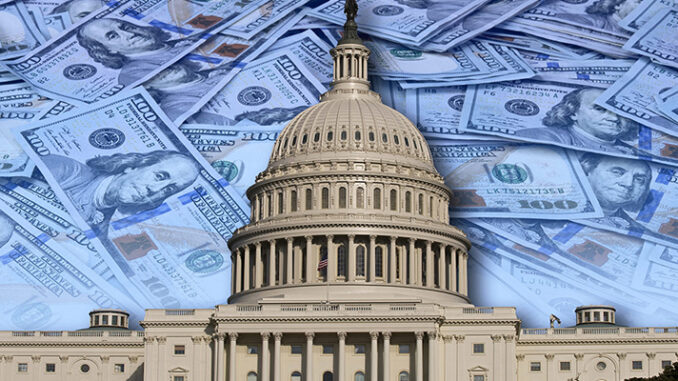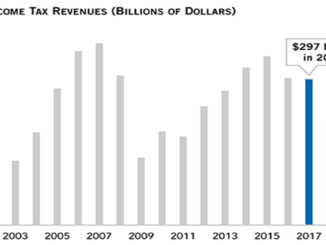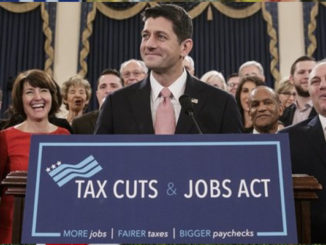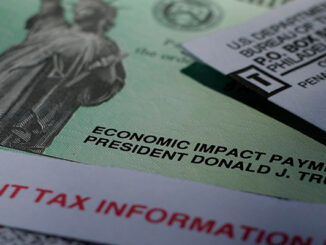
State and local costs of dealing with the pandemic are skyrocketing as revenues plunge.
by
As negotiations over the next coronavirus relief package heat up, a key point of contention — perhaps the key point — is whether Congress will provide meaningful aid to struggling state and local governments.
Boiling down the politics: Democratic lawmakers favor the move. Many Republicans, including the Senate majority leader, Mitch McConnell, do not. Some in the Trump administration have suggested that withholding aid is a great way to pressure states to reopen sooner rather than later. This is both cynical and destructive. Denying states a financial lifeline, even as Washington is showering trillions of dollars on the private sector, will only exacerbate the economic devastation that Congress is trying to mitigate.
The situation is dire. The Center on Budget and Policy Priorities estimates that states could suffer a collective shortfall of $500 billion through the 2022 fiscal year. Tapping rainy-day funds and using the targeted federal aid already appropriated would still leave a $360 billion gap, the center warns, “not including the substantial new costs they face to combat the Covid-19 virus.” Local, state and territorial governments face their own funding crunches. As tax revenues plunge, costs are expected to skyrocket as layoffs and pay cuts drive more people to apply for food stamps, Medicaid and other public assistance.
The nation’s governors have petitioned Congress for $500 billion in direct funding to help address lost revenue. Without this aid, the states — which, unlike the federal government, cannot run budget deficits — will have to start slashing costs. Read: services. Read also: jobs. Lots of public-sector jobs.
As a result of the financial crisis of 2008, state and local governments shed an estimated 585,000 jobs. This time around, the pain is expected to be even more pronounced. Teachers, law enforcement officers, bus drivers and legions of others stand to get hit. In addition, the nation’s nonprofit sector, which accounts for around 10 percent of private employment, relies heavily on government grants and contracts.
With overall unemployment anticipated to crack 16 percent this month, it is in the interest of all Americans for Congress to stabilize these pillars of the economy.
Despite this, some Republicans are presenting the issue as a partisan clash, even a question of morality. Chief among them is Mr. McConnell. “There’s not going to be any desire on the Republican side to bail out state pensions by borrowing money from future generations,” Mr. McConnell told the conservative radio host Hugh Hewitt in an interview last week, suggesting that the problem stemmed from fiscal mismanagement on the part of Democratic-led states such as New York, California and Illinois. “We’ll certainly insist that anything we’d borrow to send down to the states is not spent on solving problems that they created for themselves over the years with their pension programs.”
Mr. McConnell suggested that, rather than receiving additional aid, states should be allowed to declare bankruptcy. His office later issued a news release touting Mr. McConnell’s opposition to “Blue State Bailouts.”
Mr. Trump parroted Mr. McConnell’s argument in a Monday tweet, dialing up the partisan rhetoric, as is his way: “Why should the people and taxpayers of America be bailing out poorly run states (like Illinois, as example) and cities, in all cases Democrat run and managed, when most of the other states are not looking for bailout help? I am open to discussing anything, but just asking?”
The idea of thrifty, self-sufficient red states propping up blue states has long been a Republican canard. In 2017, Paul Ryan, who was the House speaker, trotted out this line while pushing to repeal the exemption for state and local taxes as part of the tax package. (Ultimately, the deduction was merely capped.) “States that got their act together are paying for states that didn’t,” he claimed, and promised that his desired repeal would put an end to the rest of the country “propping up profligate, big-government states.”
This claim was wrong then, and it is wrong now. To the contrary, a 2017 Associated Press analysis noted that “High-tax, traditionally Democratic states (blue), subsidize low-tax, traditionally Republican states (red) — in a big way.”
For the past few years, the Rockefeller Institute of Government has been crunching the numbers on what Mr. Ryan might have called “maker” and “taker” states — that is, which states pay more into federal coffers than they receive in federal spending, and vice versa. This year’s report found that, over four years, New York businesses and residents paid in $116.2 billion more than the state received back. New York, in fact, has the “least favorable balance of payments of any state in the nation.”
Of the 20 states with the most favorable balance of payments, a handful, at most, are blue. For every dollar in federal taxes it pays, New York receives 91 cents in return, behind only Connecticut (which receives 84 cents for each dollar), New Jersey and Massachusetts (which both receive 90 cents per dollar). Mr. McConnell’s home state, Kentucky, by contrast, rakes in $2.41 for every tax dollar it sends Washington.
In other words, Mr. McConnell’s state is effectively subsidized by blue states like New York and New Jersey. Gov. Andrew Cuomo of New York reminded Mr. McConnell of this during his Thursday news briefing. “Senator McConnell, who’s getting bailed out here?” the governor demanded. “It’s your state that is living on the money that we generate.”
Mr. McConnell took heat even from some members of his own party. “The last thing we need in the middle of an economic crisis is to have states all filing bankruptcy all across America and not able to provide services to people who desperately need them,” Maryland’s governor, Larry Hogan, the current chairman of the National Governors Association, told Politico in an interview on Thursday.
Representative Peter King, a New York Republican, took particular exception to Mr. McConnell’s suggestion that states were looking for “free money.” “To say that it is ‘free money’ to provide funds for cops, firefighters and health care workers makes McConnell the Marie Antoinette of the Senate,” Mr. King tweeted.
The Treasury Department last week also issued rules requiring states to use funding from the previous relief package to cover only “necessary expenditures due to the public health emergency” and not to offset declining revenues. This is a step in exactly the wrong direction.
Allowing state budgets to collapse is shortsighted and counterproductive. Democratic lawmakers need to hold the line in this round of relief negotiations.



